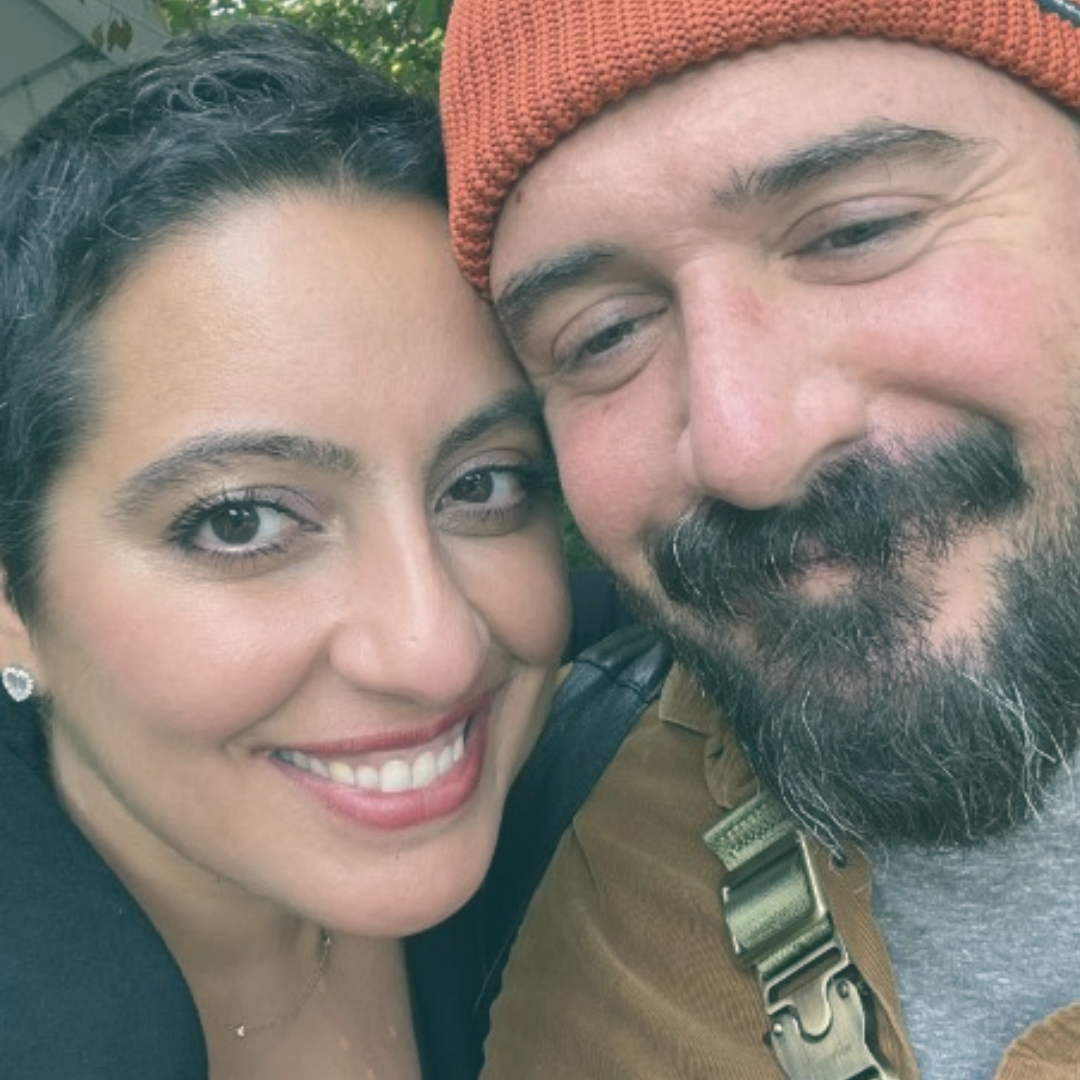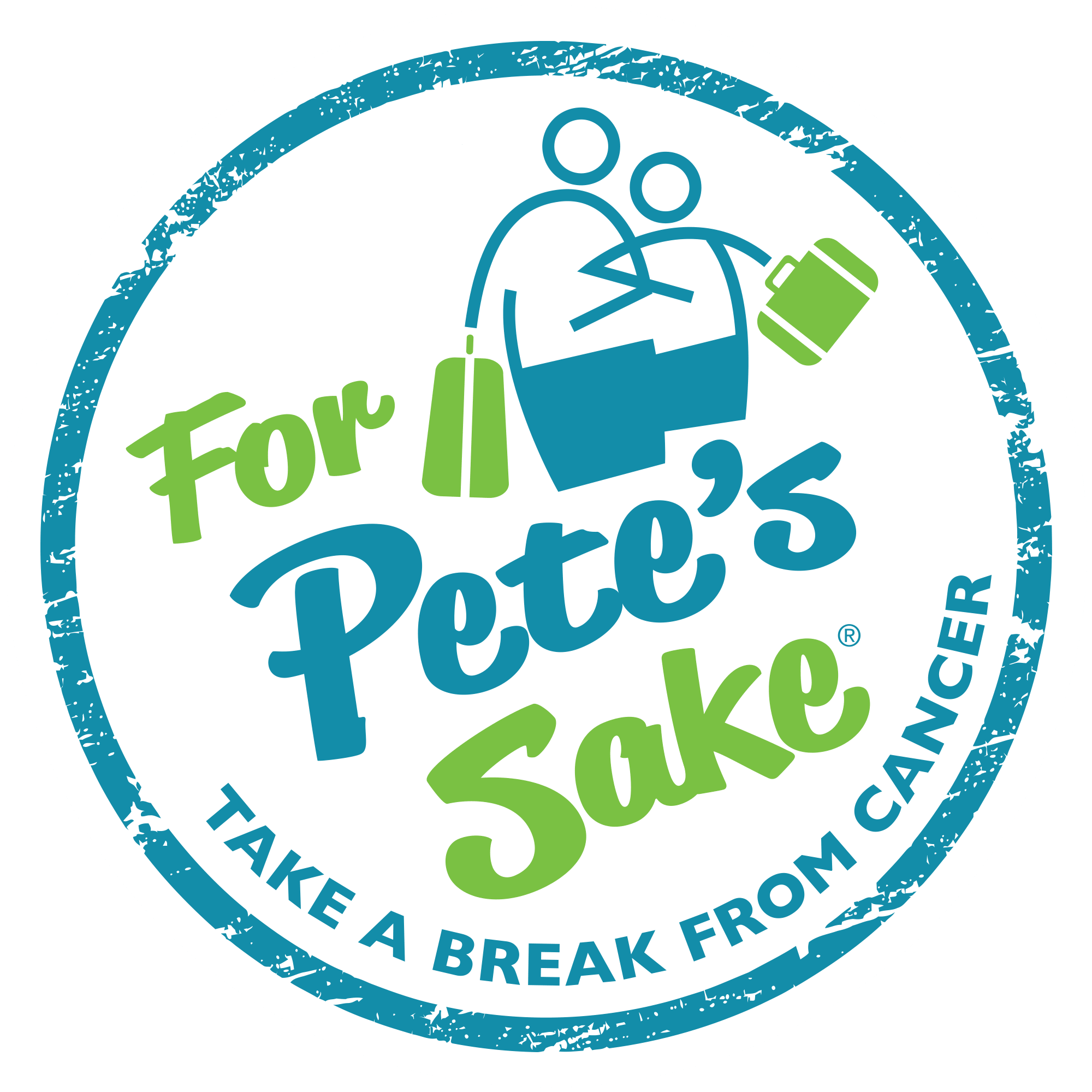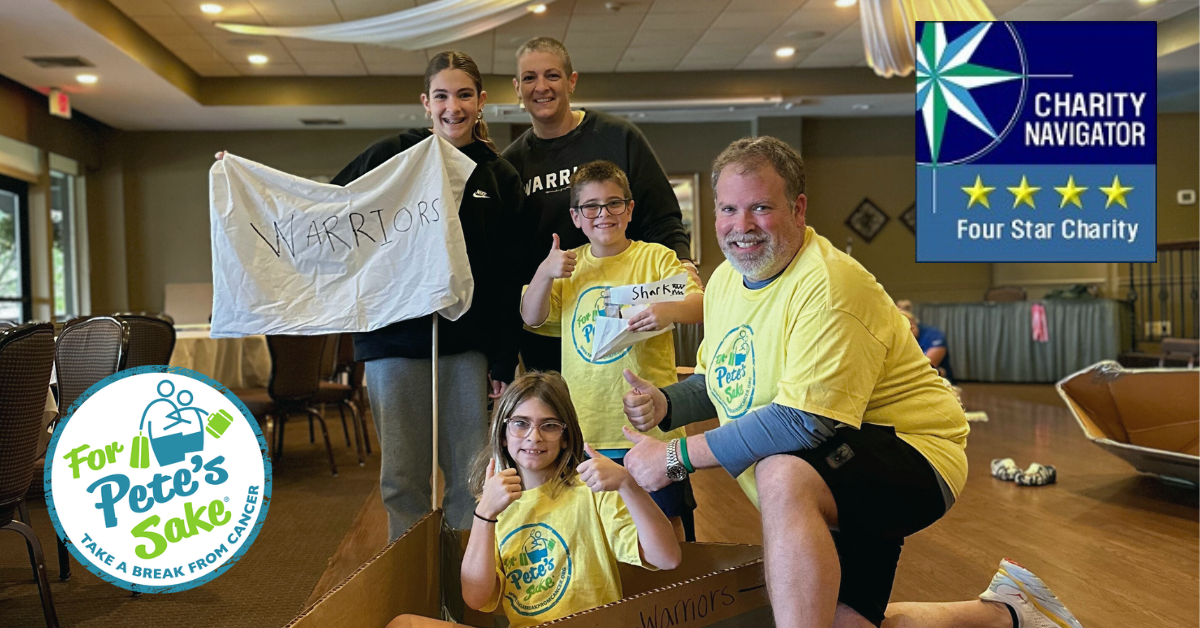FPS Family Health Education: Third Edition
For Pete’s Sake welcomes guest writers in the various areas of health related to our 7 Family Health Pillars.
This nutritional education series, written by Judith Elvira Tobal Betesh, BCHNN, IHHC, FNTP, relates to the Physical Health Pillar. Judith, who battled lymphoma, is an FPS Respite Recipient and traveled to Woodloch Resort with her husband.

“The Body Heals with Play, the Mind Heals with Laughter and the Spirit Heals with Joy.”
– Unknown
Continuing on with the “The Four Cornerstones Of Good Health.”
To review, the four cornerstones are:
- A positive mental attitude
- A healthful lifestyle: exercise, sleep, and health habits
- A health promoting bio individualized diet.
- Supplementary measures for nutrient deficiencies
We are now up to: A healthful lifestyle: exercise, sleep and health habits. We will talk about the Importance of Exercise + Sleep here and leave the Healthy Habits for the next issue.
The Importance of Regular Exercise
Without question, a healthful lifestyle improves longevity and the quality of life. One of those important things that we don’t focus on enough, or make time for is: Exercise.
Most often I ask clients if they exercise and they tell me of course I do – when I ask them what kind of exercise and for how long, they tell me that they have little kids and no housekeeper and that running after the kids, cleaning up and putting laundry away is their “exercise”.
Now don’t get me wrong – those are ALL Warrior status chores, deserving of daily trophy ceremonies, but alas they do not constitute as “exercise”.
The statistics show that more then 60% of Americans DO NOT exercise on a regular basis.
The entire body itself will benefit from regular exercise, largely because of improved cardiovascular and respiratory function. Exercise enhances the transport of oxygen and nutrients into the cell at the same time as it enhances the transport of carbon dioxide and other waste products out of the cells. You will also find that exercise increases your overall energy levels.
Physical inactivity is a major reason so many Americans are overweight. This is especially true for children- research indicates childhood obesity is associated more with inactivity than with overeating.
There is also strong evidence suggesting that 80 to 86% of adult obesity begins in childhood. If you have kids, get them active. If you are not active yourself, make a change and get active, especially if you have weight to lose.
As a general goal, aim for at least 30 minutes of moderate physical activity every day. If you want to lose weight, maintain weight loss, or meet specific fitness goals, you may need to exercise more.
Exercise promotes the efficient burning of fat. Muscle tissue is the primary user of fat calories in the body, so the greater your muscle mass, the greater your fat-burning capacity. If you want to be healthy and achieve your ideal body weight, you must exercise.
Added Bonus! Exercise causes your body to release proteins called myokines into your blood. These proteins are known to help your immune system fight and even kill cancer cells, raising the possibility that exercise, in combination with your treatment plan, can help treat cancer. Also, regular exercise has been shown to reduce treatment-related fatigue.
Exercise and Mood
Regular exercise exerts a powerful positive effect on mood. Tension, restlessness, depression, feelings of inadequacy, and worrying diminish greatly with regular exercise. Exercise alone has been demonstrated to have a tremendous impact on improving mood and the ability to handle stressful life situations.
Regular Exercise has been shown to increase powerful mood-elevating substances in the brain known as endorphins. These compounds have effects like those of morphine, although much milder. There is a clear association between exercise and endorphin elevation, and when endorphins go up, mood follows. If the benefits of exercise could be put in a pill, you would have the most powerful health promoting medication available.
The Importance of Sleep
Sleep is perhaps one of the least understood physiological processes. Its value to human health and proper functioning is without question. Sleep is essential to both the body and the mind. Impaired sleep, altered sleep patterns, and sleep deprivation wreak havoc on mental and physical function.
Many health conditions, particularly depression, chronic fatigue syndrome, and fibromyalgia, are either entirely or partially related to sleep deprivation or disturbed sleep. Over the course of a year more than half of the U.S. population will have difficulty falling asleep. About 66% of Americans experience Insomnia on a regular basis.
Sleep functions as an antioxidant for the brain: free radicals that can damage neurons are removed as you snooze. Most people can tolerate a few days without sleep and fully recover. However, chronic sleep deprivation appears to accelerate aging of the brain, causes neuronal damage, and leads to night-time elevations in the stress hormone cortisol.
How Much Sleep Do You Need?
Exactly how much sleep is required by an individual varies from one person to the next and from one stage of life to another. A one-year-old baby requires about 14 hours of sleep a day, a five-year-old about 12, and adults about 7 to 8. In addition, women tend to require more sleep than men. As people age their sleep needs may decline (the research is not clear), but so does their ability to sustain sleep, probably as a result of decreased levels of important brain chemicals such as serotonin and melatonin. The elderly tend to sleep less at night but doze more during the day than younger adults.
During cancer treatment, the need for sleep may increase for some, as the body repairs itself. Listen to your body and rest when needed. Make sure your Oncologist is aware of any sleep issues and if possible try to take your steroids (if part of your treatment) earlier in the day.
How to Improve Sleep Behaviors
- Avoid eating heavy meals, spicy foods, or sugary items close to bedtime.
- Avoid watching TV or working in the bedroom.
- Remove electronic devices from the bedroom.
- Make sure your bedroom is free from light and noise. Consider using earplugs or wearing a sleep mask or adding a sound machine.
- Avoid smoking and limit your caffeine intake.
- Avoid drinking alcohol, especially 4-8 hours prior to bedtime.
- Consider moving any clocks out of view of your bed.
- Wear blue blocking glasses when using computers, iPads, iPhones and any other electronics close to your bedtime.
Just like the other four cornerstones of good health, the importance of a health-promoting lifestyle cannot be overstated. Lifestyle comes down to choices. If you want to be healthy, simply make healthy choices.
Choose not to smoke. Choose to find physical activities that you enjoy and do them often.
Make getting a good night’s sleep a priority and have fun with your dreams. These simple lifestyle choices will have a profound effect on your health and the quality of your life.
Please find below two Images on a Beginners Workout:


If you have any comments or questions, you can email me at Elvirasallnatural@gmail.com
Stay tuned for next month’s continuation of the four cornerstones for optimal health.
Namaste
 Judith Elvira Tobal is a Board-certified Holistic Health and Functional Nutrition Practitioner. Her mission is to empower each client to take control of their health and improve their well-being by making sustainable changes appropriate for their own individual lifestyle and needs. Personalized tailored options for nutritional counseling including but not limited to: weight-loss consultation, mindful eating counseling, anti-inflammatory diet recommendations, heart-healthy diet guidelines, navigating food allergies, women’s health, blood sugar regulation, nutrition for disease prevention, cleansing and elimination diet, healthy skin from the inside out, as well as healthy aging through nutritional protocols.
Judith Elvira Tobal is a Board-certified Holistic Health and Functional Nutrition Practitioner. Her mission is to empower each client to take control of their health and improve their well-being by making sustainable changes appropriate for their own individual lifestyle and needs. Personalized tailored options for nutritional counseling including but not limited to: weight-loss consultation, mindful eating counseling, anti-inflammatory diet recommendations, heart-healthy diet guidelines, navigating food allergies, women’s health, blood sugar regulation, nutrition for disease prevention, cleansing and elimination diet, healthy skin from the inside out, as well as healthy aging through nutritional protocols.
You can reach her at Elvirasallnatural@gmail.com or visit https://www.elvirasallnatural.com/
Reliance on Information Posted
The information presented on or through the Website is made available solely for general information purposes. We do not warrant the accuracy, completeness or usefulness of this information. Any reliance you place on such information is strictly at your own risk. We disclaim all liability and responsibility arising from any reliance placed on such materials by you or any other visitor to the Website, or by anyone who may be informed of any of its contents.









 FPS has been awarded a perfect score by Charity Navigator, a feat accomplished by less than one-tenth of one percent of charities! As the end of 2023 approaches, we encourage you to make your gift by December 31! By choosing to support FPS, you are not just donating to a charity; you can give with confidence and know that your donation will have a direct impact on the 795 people we plan to serve this year with over 76,000 hours of respite.
FPS has been awarded a perfect score by Charity Navigator, a feat accomplished by less than one-tenth of one percent of charities! As the end of 2023 approaches, we encourage you to make your gift by December 31! By choosing to support FPS, you are not just donating to a charity; you can give with confidence and know that your donation will have a direct impact on the 795 people we plan to serve this year with over 76,000 hours of respite.